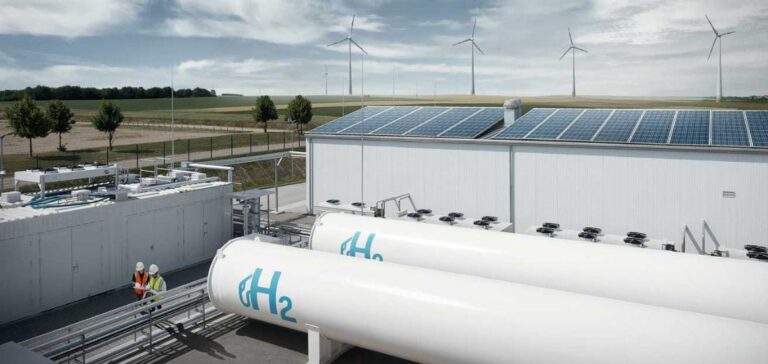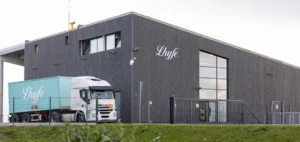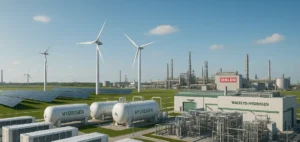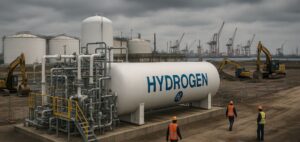Germany is at a crossroads because of the country’s dependence on gas from Russia.
The abandonment of Russian gas
Germany must find an alternative energy source to gas. The country did not anticipate this crisis by using low-cost Russian gas. In an emergency following the war in Ukraine, Berlin decided in 2022 to restart the coal-fired power plants.
However, Germany could go through a reindustrialization with renewable energies, especially hydrogen. Klaus Wohlrabe, economist at the ifo, says:
“Relying on fossil fuels in the long term…has proven to be a risky path. So, in the medium term, at least, companies have no choice but to reorient themselves.”
Indeed, before the invasion of Ukraine, 50% of the gas consumed in Germany came from Russia.
The search for alternative solutions
In Kelheim, for example, the German company Kelheim Fibers, which is known for its use of fibers (tea bags), will use fuel oil instead of gas from January 2023. This will increase carbon emissions and the company is considering switching to hydrogen. Craig Barker, Managing Director of Kelheim Fibers, states:
“We want to be one of the first large companies in Bavaria to switch to hydrogen.”
Energy costs represent 60% to 70% of variable expenses. Thus, they exceed the costs of the raw material. Kelheim Fibers is in talks for hydrogen imports of up to 30,000 tons per year from 2025. Berlin recently approved the construction of Germany’s first hydrogen pipeline network.
The industry and utility association, BDEW, wants to accelerate investment in hydrogen. It promotes a hydrogen law. The objective is to reduce bureaucracy and regulate the rise of hydrogen.
Kerstin Andreae, BDEW President, states:
“2023 must provide a new impetus for investment in renewable energy, including hydrogen, gas-fired power plants capable of producing hydrogen, and energy networks.”
Germany’s small and medium-sized enterprises are the backbone of Europe’s largest economy. They are thus seeking to diversify their energy mix to maintain their production.





















